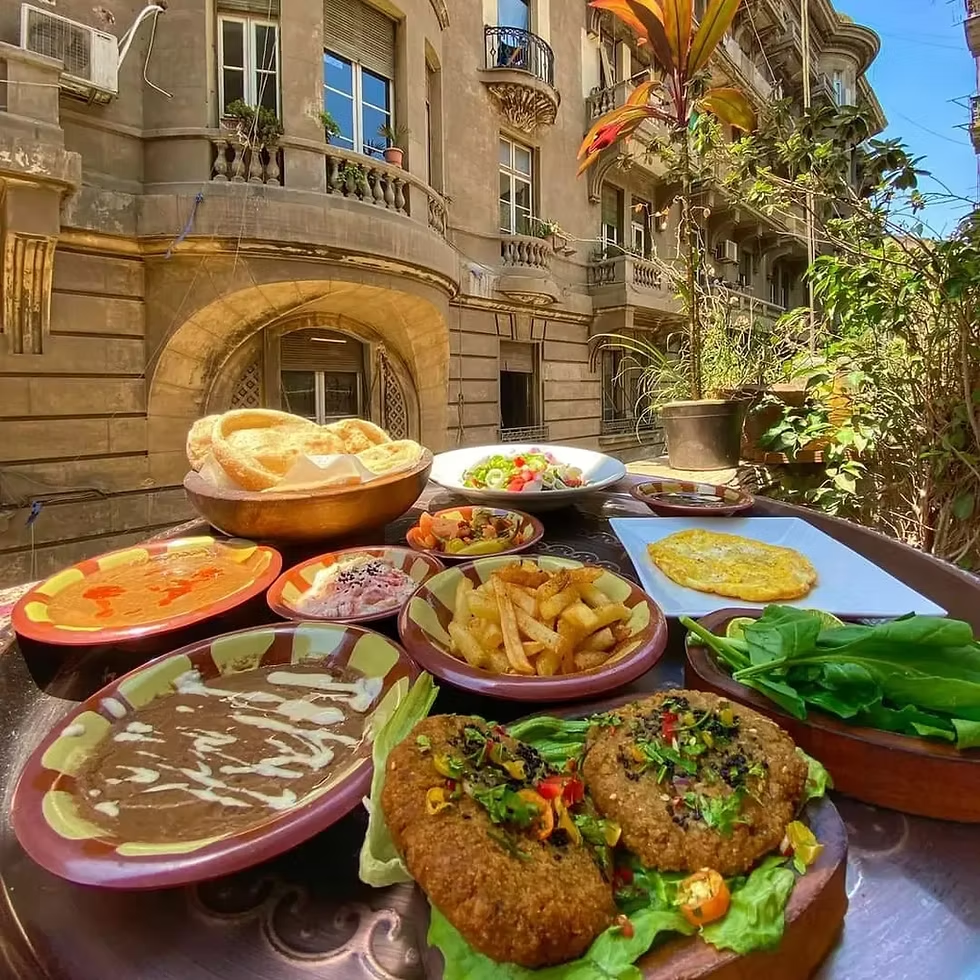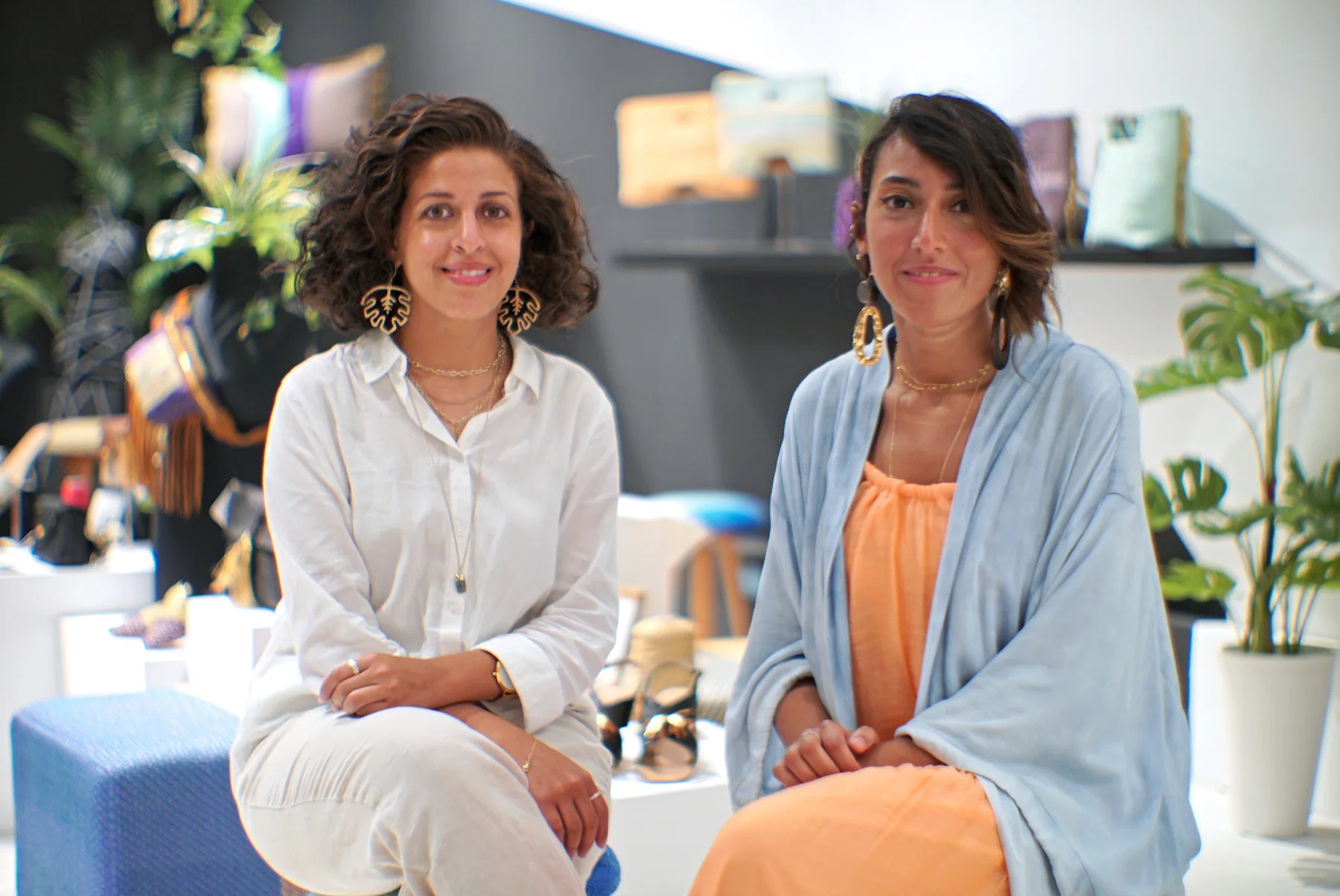In Cairo, eating is never just about food. It’s about proximity — elbows brushing, plates overlapping, stories shared between bites. Every meal here is a small act of belonging, and every table tells a story.
You can arrive in this city knowing no one, but by the end of your first week, you’ll have been invited somewhere — a dinner, a coffee, a family meal that stretches into midnight. That’s how Cairo welcomes you: not with directions, but with dishes.
1. The Café as a Classroom
Start your education in Felfela, the legendary restaurant tucked off Talaat Harb Street, where waiters in embroidered vests move like actors in an unending play. Tourists come for the décor — palms, mosaics, and birdsong — but locals come for routine.
At one table, two retirees debate politics over molokhia. At another, an expat journalist types between spoonfuls of foul. “Everyone ends up here eventually,” says Mahmoud, a waiter who’s worked there for thirty years. “Even if they don’t mean to.”
But Cairo’s true learning happens not in restaurants, but in cafés — the neighborhood kind with plastic chairs, not playlists. Try Eish + Malh in Downtown for mornings, where writers gather beside photographers, or Kafein for the scent of cinnamon and quiet conversation.
“We call them ahawi,” says Ahmed Saeed, a barista and musician. “They’re not just cafés. They’re classrooms. You come here to learn people.”
On any given morning, the air hums with opinions — football, love, rent, weather, politics, God. You don’t have to join; it’s enough to listen.
2. The Street as Kitchen
At noon, Cairo’s food becomes kinetic. Smoke curls from carts on every corner — grilling liver, roasting corn, or frying falafel in sizzling oil.
Follow the scent into Mohandessin, where El Prince reigns supreme. Crowds spill into the street, waiting for molokhia, kebda, and rice cooked in meat broth. Waiters carry trays the size of tires; strangers share tables.
“El Prince is Cairo,” laughs Youssef, a regular customer. “You sit beside a banker, a taxi driver, and a celebrity — and no one cares who’s who.”
Across the river, in Sayeda Zeinab, Abo Tarek serves koshari from towering pots, ladling rice, pasta, and lentils in perfect rhythm. His father started it from a street cart in the 1950s. Now, the name is a landmark.
Not far away, women in alleys sell mahlabeya in glass cups, men push carts of roasted sweet potatoes, and teenagers gather around juice stands after school. Street food here isn’t casual; it’s cultural memory — shared, evolving, alive.
3. The Private Table
If you’re lucky enough to be invited into an Egyptian home, go hungry.
Cairo’s hospitality defies proportion. Meals are an art of abundance: mahshi, molokhia, roasted chicken, salads, bread — always bread.
“Eat, eat, you didn’t eat anything!” is the most repeated phrase in Egyptian homes. It doesn’t mean they think you’re hungry. It means you’re welcome.
In Maadi, expat newcomers often find themselves invited by neighbors for iftar during Ramadan — the meal that breaks the fast. Candles flicker, hands reach for dates, and silence fills the room for a few seconds before the first bite. Then the laughter begins.
“It’s not about religion,” says Nourhan, a young artist who hosts foreigners each year. “It’s about sharing time. We measure love in minutes at the table.”
Cairo’s dining rooms are where strangers become friends. No one leaves a table here untouched — by food, or by feeling.
4. The New Wave
A younger generation of chefs is redefining where Cairo eats.
At Kazouza, sandwiches come wrapped in nostalgia and design.
At Zooba, street food turns global without losing its soul.
At Supper Club Cairo, dinners are secret — announced via text, hosted by chefs in converted apartments.
One evening, Chef Aya Mostafa, founder of The Table Project, sets long communal tables in an old garden villa in Garden City. Guests don’t know each other. By dessert, they do.
“Food is Egypt’s only democracy,” she says, pouring mint tea. “Everyone gets a seat.”
The menus rotate — Nubian stews, Upper Egyptian lentil soup, Alexandrian seafood risotto — but the essence remains the same: shared heritage, shared humanity.
5. The River Table
No Cairo night is complete without the Nile.
Board a felucca, a wooden sailboat that drifts with the current, and bring along a bag of street snacks: falafel, chips, mango juice, roasted peanuts.
The water reflects the lights of the bridges; laughter carries across the river.
Couples sit side by side, families sing, and strangers become silent together as the wind cools the night. The city feels far away, even as it surrounds you.
When the boatman turns the sail, the breeze catches your hair, and the scent of the city returns — bread, smoke, tea. The same scents that greeted you when you arrived. Cairo has circled back to feed you once more.
6. The Table as Metaphor
Cairo’s tables are the city’s diplomacy. They host revolutionaries and retirees, expats and students, Christians and Muslims, vegans and carnivores — all elbow to elbow, all breaking bread from the same loaf.
When you leave, it’s not the monuments you’ll miss. It’s the rhythm of plates, the sound of shared laughter, the insistence that no one eats alone.
“The city feeds you,” says food writer Reem El Khayat. “Not just with food — with company.”




